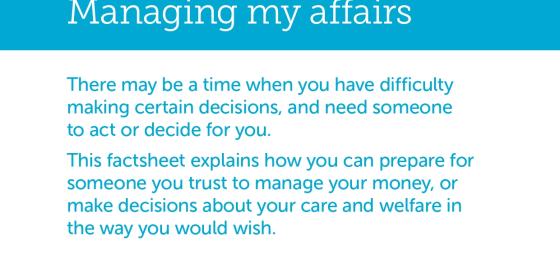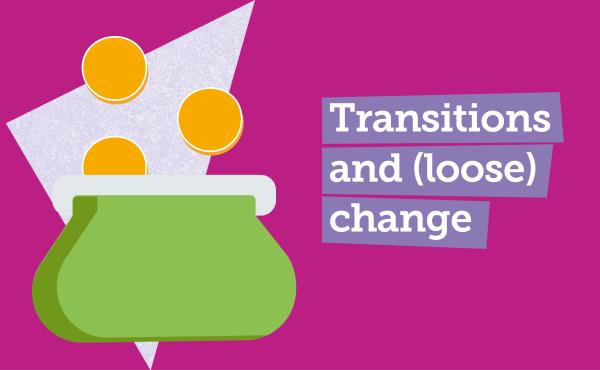
“I don’t know what you’re worrying about. You can use all the money you didn’t spend on having children on paying for your care”
The above is a fairly typical response made by the public when bringing up the topic of ageing without children; the assumption that if you have no children you are considerably more materially wealthy than those with children. Not only that, but that it magically solves all the other problems associated with care such as the difficulty in accessing assessments, not having an advocate, choosing a supplier and ensuring the care provided is of good quality. As the Centre for Ageing Better have demonstrated, income does not necessarily equal a better or happier later life.
One of the biggest financial challenges for people ageing without children is the assumption that they have no financial challenges.
This goes back to the stereotype that people ageing without children are primarily single women who chose their career over giving birth and enjoyed a lifetime of high heels and cocktails before retiring early to gallivant around the globe. It is one of the most common “bingos” the term coined by Jody Day of Gateway Women to highlight the most common responses that women without children hear when they express worries about their later life.
Misplaced assumptions
However, the reality is of course far more complex. People ageing without children include those with no children at all but also people who maybe estranged from their children, live at a distance from their children, had children who predeceased them or have children that are unable to offer support e.g. because their adult children still need care. Moreover, although there is evidence to show that women ageing without children are more likely to have a degree and be higher earners, the reverse is true for men without children who are more likely to have a poor employment record and lower incomes. People ageing without children are also more likely to be carers and we also know that carers generally have much lower incomes.
It should not therefore be assumed that people ageing without children are significantly wealthier than those who do have children.
One of the biggest worries for people ageing without children, whether they have a lot of money or a little, is what happens when they can no longer manage their own finances without help? This is often assumed to mean if they lack capacity, e.g. because they have dementia, but is actually broader than that and encompasses very practical issues, such as not being able to physically get to a bank or as more and more banking services move on line, being unable to manage the technology required on their own. The latter is one that strikes a chord with people ageing without children.
“It’s all the technology isn’t it? My friends say ‘oh I got my grandson to show me’ but that’s not an option for me”
Who will act as power of attorney in the absence of adult children is also a particularly difficult issue. Some people appoint friends but recognise that that has inherent limitations as most people’s friends are within their age bracket and as people age their friend’s ability to help is likely to diminish. Others appoint solicitors but with a recognition that unless it’s a solicitor the person has known a long time, they will act in their best interests legally but not necessarily from a position of really knowing the person and what they would want.
“I am a power of attorney for my mother and this takes time and research to ensure her money is well invested; who will do this for me? How will I know when I am old if I am being scammed?”
More and more is being done to highlight how older people are at risk of being scammed. In almost every case, the reason it came to light was because adult children had picked up on strange spending habits, telephone usage and increased mail. Being ageing without children is a huge risk factor in being the victim of a scam.
What can we do?
There needs to be far greater awareness and understanding of the numbers of people ageing without children and the impact this on them as individuals but also on services and communities.
Ageing well without children was part of the transitions in later life programme funded by the Gulbenkian foundation. We learned there was a huge appetite amongst people ageing without children about how to plan for a positive later life without children. They particularly valued the chance to be with other people ageing without children because of the emotional dimension some people still experience as well as the different reality of not having family to look to for support. More organisations are developing courses on planning for later life; the specific issues facing people ageing without children need to be understood and included.
Advocacy – there is an urgent need to invest in advocacy services which have become under increasing financial pressure with funding being focused on advocacy required by statute rather than general advocacy.
With at least 1 million people already over 65 without children these issues will only grow.
With money as with everything, assumptions must not be made about people ageing without children and more done to understand and address the reality.
You can find out more about Ageing without children here: https://ageingwithoutchildrenconsultancy.com/
Kirsty Woodard is an independent consultant and founder of Ageing without Children Consultancy.
Have you been affected by any of these issues?
If you have been affected by any of the issues described in this blog, or simply need someone to reach out to, you can call Independent Age’s freephone Helpline for information and advice on 0800 319 6789.
The views and opinions expressed in this article are those of the author and do not necessarily reflect the policy or position of Independent Age. |
